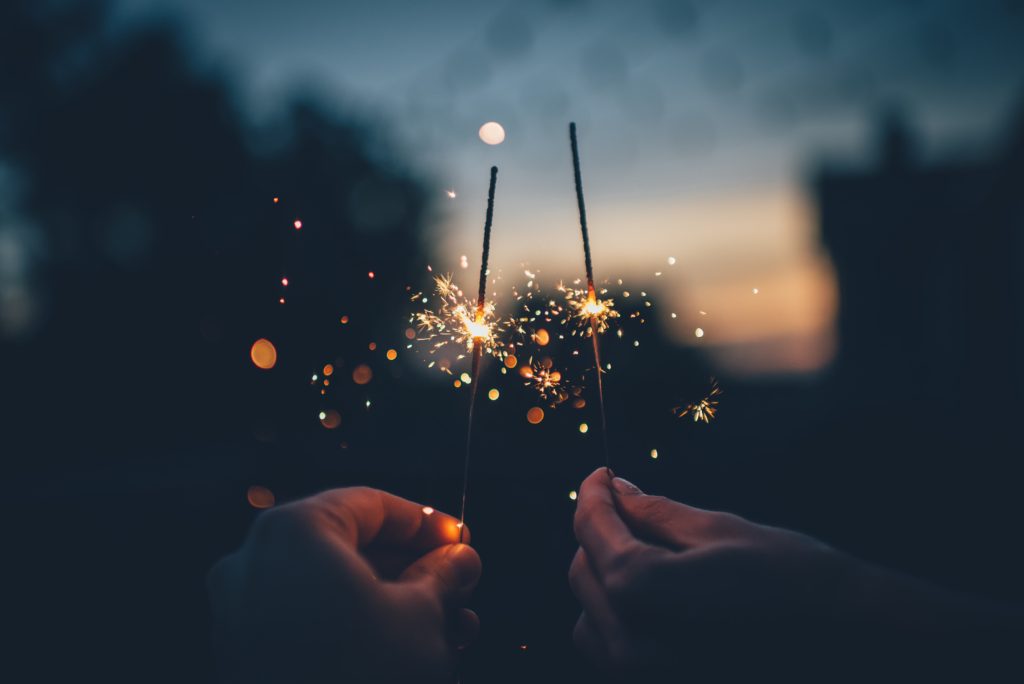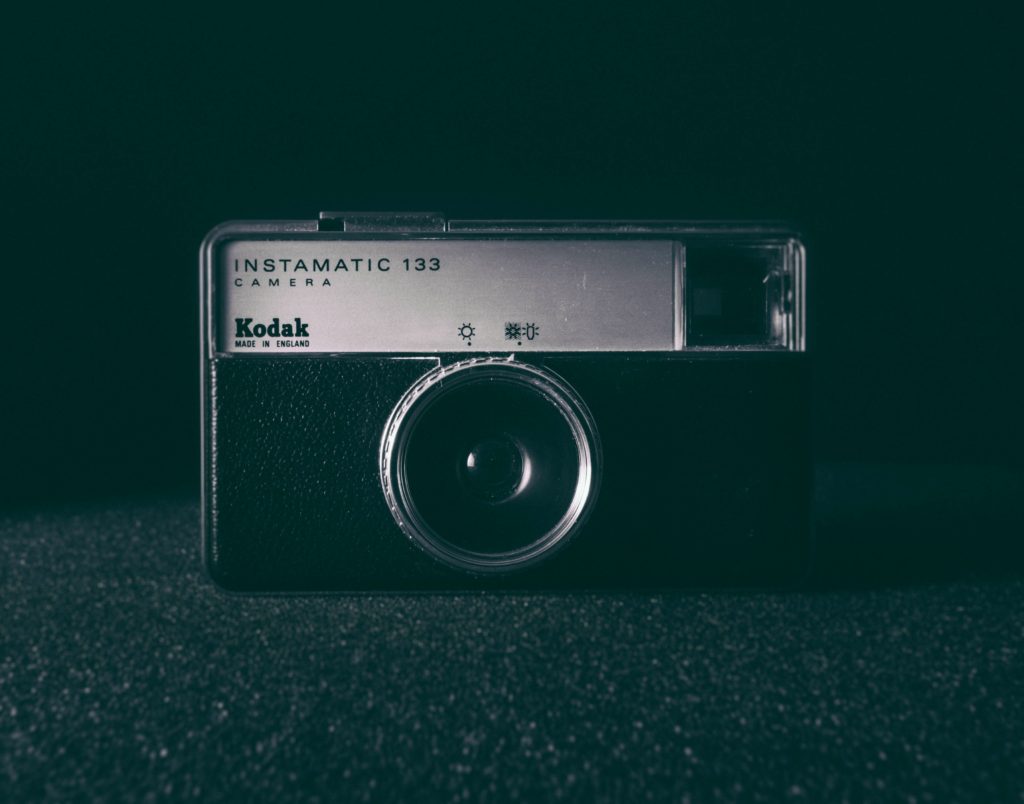When I was 7, there was a boy in my first-grade class that I didn’t like. I don’t remember why, his name, face, or any identifying features, but what’s seared into my brain is how I treated him on Valentine’s Day. It’s standard practice to give all the kids in your class a Valentine and for this boy, I decided to let him know how I really felt about him. I took out a piece of notebook paper and wrote, “I hate you, I hate you, I hate you, I hate you, I hate you,” until I ran out of space. But that didn’t feel like enough so I asked my brother, “What’s a word that means over and over again?” and he responded, “Et cetera,” which of course I didn’t know how to spell.
So at the end of a page filled with “I hate yous” I tacked on an “etc.” I tucked the paper into an envelope and signed my name so he would know it was from me. The next day I watched his face crumple reading my “Valentine.” He showed the piece of paper to our teacher and she said, “I’m sure she didn’t mean it.” I remember feeling mixed emotions because I did mean it. I did hate him but at the same time, I didn’t expect him to respond the way he did. In my mind, he was a monster, incapable of emotions, but seeing how hurt he was gut-punched me.

Peace is possible if we do the internal work. Photo by Sunguk Kim on Unsplash
As a 7-year-old, I wasn’t thinking about how this little boy would feel. All that mattered was expressing how I felt because I was the wronged party. He was mean to me. What I did to this little boy is what some people are doing now – they are only thinking about how they feel, not the impact their words will have on other people. What I also did to this boy is I dehumanized him. As a 7-year-old, there weren’t dangerous consequences to my perception but that’s not true for adults.
When you perceive a human being as an animal or a monster that must be destroyed, you will put them in a cage. You will bomb the crap out of their homeland. You will decapitate them and their family. You will do whatever it takes to show them how you feel without considering how they feel.
It’s worth mentioning that balance is important. There is such a thing as considering someone else’s feelings too much and that’s known as codependence. By and large though, we’re suffering from a lack of empathy, not too much of it. As a highly sensitive person, I’ve been crying about the ugliness in the world. It feels not great to read people are saying, “Gas the Jews!” and “Wipe Gaza off the face of the Earth!” Have we forgotten, just like I did, that words hurt? They don’t leave a visible mark like bruises do but can ring in your ears long after a physical injury has healed.
What do we do about this? How can we remember each other’s humanity when it feels so very challenging? There’s a Nonviolent Communication (NVC) exercise called simply “the exercise” that is so powerful for this. It’s a way to shift your inner landscape closer to connection, compassion, and peace. Any movement in that direction is a win so don’t worry if you’re not suddenly filled with peace after doing it.
I know it’s easy to let anger fuel us, I’m guilty of that myself, but if you have even a modicum of a desire to create a peaceful planet that goes beyond the limits of small social identities, I encourage you to do the exercise I linked to. Not only that, share it with your friends. As humans, we don’t have to give in to our baser instincts. There is another way. We can move toward peace but it requires more than a ceasefire. It requires us to view each other differently.
I dream of a world where we recognize how dangerous it is to only think about how we feel and not how others feel. A world where we don’t let anger and hatred fuel us. A world where we do the work to see others as human beings no matter how hard it is. A world where we all work together to move toward peace.
Another world is not only possible, it’s probable.
I would say the prevailing sentiment for me right now is disillusionment. I’m seeing things as they are, not how I’d like them to be. I read an article the other day about the presence of white supremacists growing faster on twitter than ISIS. The number of accounts has grown by 600 percent since 2012. What’s interesting is instead of feeling scared, I feel relieved. I think a part of me knew this was coming, expected it, and perhaps even prepared for it.
As I’ve perused news stories about the rise of white supremacy and neo-Nazis, a voice clearly said, “You were made for these times.” I’m not alone in this. We were all made for these times. Every experience we’ve had to date has prepared us for this precise moment and for all the moments to come. No experience is wasted.
When I think about my experiences, I see how my outlook, my loving nature, and my empathy are useful for today’s world.
I grew up in a household that practiced yoga and meditation and was taught from an early age to find similarities over differences. It wasn’t unusual for a person from a far-off land to stay with us. Hearing different accents was normal. I won’t say I’m completely free of bias and prejudice, but I will say I make an effort to work on it. I didn’t realize how valuable that was until after this election.
My spiritual teacher says, “Those whose preachings encourage discriminatory feelings are the worst enemies of humanity. These are the people who in every age … have caused blood to flow. And even today these vested interests are still trying to perpetrate discrimination in a thousand and one ways.”
He obviously has some strong words about those who want to encourage division. Instead, he advocates seeing everyone as a expression of the divine, something far easier said than done. A way for me to practice that is empathy. To recognize we are all human beings trying to meet our needs. I may not agree with the strategies to meet those needs, but I can see we all want the same things.
Audrey Hepburn said, “Nothing is more important than empathy for another human being’s suffering. Nothing. Not a career, not wealth, not intelligence, certainly not status. We have to feel for one another if we’re going to survive with dignity.”
Surviving with dignity means building bridges, not walls. It’s important for us to create a “we” space, not an “us versus them,” space. “Us versus them” means hate, it means discrimination, it means fear, it means cruelty. I do not hate those who hate me. I do not hate those who hate others. Hate only breeds more hate and more division. Instead, in these challenging times I’m choosing to see other people as human beings, worthy of love and respect. I will fight tooth and nail against policies and practices that harm others, but I will not do so with hate in my heart because my experiences do not allow me to do that. I was made for these times. We all were.
I dream of a world where we realize we were made for these times. A world where we realize we all have unique talents and skills that may be put to use in service of others. A world where we understand each experience prepares us for another. A world where we realize we were born for this.
Another world is not only possible, it’s probable.
I am very attached to my vision of things. I have an idea of how things “should” look and it’s hard for me to let that go. In the nonviolent communication world, we’d call that being attached to a certain strategy for getting a need met.
This week I’m zeroing in on my strategies and also realizing I can still get my needs met without employing a specific one. For instance, I have a need for intimacy and connection (we all do). My perspective has been because I’m single, those needs are not getting met. However, I finally looked up the definition of both those words, to be sure they mean what I think they mean.
The definition of intimacy is “the state of being intimate; close familiarity or association. Nearness in friendship.” And intimate means, “Innermost; inward; internal; deep-seated; hearty. Or near; close; direct; thorough; complete.” Once I read that definition I said, “What am I complaining about? I have that in spades.” Because I do. I have that with myself, I have that with friends. Heck, I have that with strangers.
Similarly, connection means “that which connects or joins together; bond; tie.” Did you know Rebekah means to tie or to bind? Guys, connection is quite literally my name. I already have what I want, it’s inherent to who I am. It feels good to refocus and see nothing is missing in my life, although on the surface it may seem that way.
This topic also reminds me of one of my favorite movies, Under the Tuscan Sun. The main character moves to Tuscany, by herself, and cries to a friend about wanting a wedding in her house, and a family, and someone to cook for. She imagines that wish will become a reality because she meets someone, but in the end, her wish comes true in a different way: she hosts a wedding for her neighbor, her best friend moves in with her newborn daughter, and she starts cooking for her friends.
I realize Under the Tuscan Sun is a movie, but I love stories like these because they remind me the universe is open and surprising. That there are many ways to meet a need. That I don’t have to cling to a certain strategy because the world is a vast and mysterious place. And furthermore, when I refocus, I may find I already have what I want.
I dream of a world where we take a closer look at our needs and find how they’re already getting met. A world where we let go of our attachments to how things “should” go and instead let the universe unfold as it will.
Another world is not only possible, it’s probable.
More and more I’m noticing that what we all want is to be seen, heard, and understood. We want people to empathize with us, to recognize what we’re going through and trying to express.
This week I had some angry interactions with others. They became upset over something that involved me, but wasn’t really about me. My first reaction when someone explodes in my direction is to cower, to take it in. My next reaction is to become angry in return, to meet anger with anger. Finally, I turn to empathy and say, “I hear what you’re saying. It sounds like you feel _____.” When I’m able to get to that empathic place, the person cools down and says, “You’re right, that’s exactly how I feel,” and then we’re able to have an honest conversation. The honest conversation is where the solutions come from.
A friend told me recently the hardest part about relationships for her is going deeper when she’s wounded. That instead of running away from her partner when he gets upset, or trying to hurt him back, is getting to that empathic, vulnerable place. I found that to be true for me too, especially when I’d much rather throttle the person’s neck. I’m not saying anger doesn’t have its place – it absolutely does – but sometimes its better to express anger to a neutral third party. Instead of escalating a heated situation, it’s often better to call up someone else and vent.
I find this to be true for other emotions too. When I’m sad, sometimes I want someone to tell me things will be OK, or to help me problem solve, but oftentimes I’d rather someone said, “I hear you. That sucks,” and then let me cry. I usually know what I need to do so I’d much rather have support than advice.
I first wrote about empathic listening or nonviolent communication in 2009. I’ve been using some of the methods I picked up ever since and find it just as inspiring now as I did then.
What I find so encouraging about empathic listening is its potential for huge and lasting change. It’s been used to reduce violence in hospitals and curb bullying. Plus Marshall Rosenberg, the founder of nonviolent communication, negotiated peace deals with terrorists using the method. I can’t help but wonder how much of the violence in the world is because people are not getting their needs met? How often are we resorting to angry words and louder voices in an effort to get people to understand where we’re coming from? Not everything can be solved with empathic listening of course, but I honestly think some problems can.
I dream of a world where we make an effort to see, hear, and understand each other better. A world where instead of firing off an angry invective, we try to access an empathic place. A world where we bring more love into our conversations, especially the hard ones. A world where we can honestly say we do hear one another.
Another world is not only possible, it’s probable.


